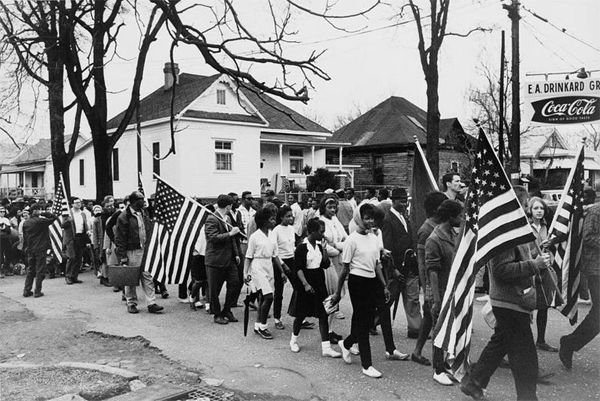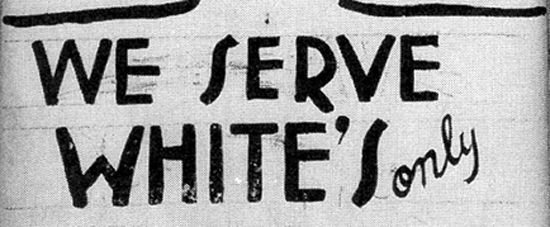Selma to Montgomery march – 1965
I was re-reading for the nth time Hamden Rice’s powerful piece “Most of you have no idea what Martin Luther King actually did“, yesterday, where he describes what his father told him about the importance of Dr. King and the movement he was an integral part of, in making black people unafraid.
When talking about the resistance to Martin Luther King Day, last Sunday, and in reading and commenting in Meteor Blade’s piece on J. Edgar Hoover’s assaults on Dr. King and the movement, it struck me that some people-imho mistakenly-believe the civil rights movement was ended with the death of Dr. King. That somehow it was buried with him, and is now solely to be honored and respected as “history”, to be dusted off a few times a year. The wikipedia entry gives dates “1955-68”.
I realized that those of us who lived during those early days have a very different perspective than those who were born later and perhaps got insights from watching series like “Eyes on the Prize” or reading memorial news coverage.
For me, the movement has never ended…yes it has had an ebb and flow, and yes, we have lost leaders and cadres and supporters over the years-to natural and unnatural death-but the reasons we have struggled haven’t gone away, and the reports of “movement’s end”, from my perspective are greatly exaggerated.
In fact, it’s a lie that we cannot afford to buy.
I recognize that people of all ages, races and ethnicities who continue to fight the battle, were at some point moved, or jettisoned into the struggle, by a moment, or an image, or an incident that had a profound impact and continues to sustain their movement forward. That people who are committed to long term struggle are sustained by memories and moments large and small.
I’ve never asked people to share what memory, or moment, or incident shaped your commitment.
I’d like to do so today.
I know that one of the most profound moments in my childhood sounds simple. I was in Princess Anne Maryland, with my mom, in the hot summertime. I was 4 or 5 years old. I wanted an ice cream cone. I saw a little boy standing inside an ice cream parlor, licking one with relish. He looked at me, through the glass, and slowly stuck his tongue out at me. My mom was dragging me away. There would be no ice cream that day, because as she explained to me, that little boy was “white”, and that ice cream parlor was segregated, and my mother wasn’t setting foot in a place like that.
I’ve never forgotten that day, that boy, that ice cream cone. That word-segregation.
I was never denied ice cream in NYC.
Sure, later as I grew older, I learned about race, and racism, Jim Crow, and voting rights, and racial economic inequality, and was encouraged by my parents to fight back-actively. I joined various wings of “the movement”. I joined young people, and middle aged people and old folks, of all colors, and we marched on. I fought in the North, and I fought in the South. I fought alongside Native Americans, and Asians, and Puerto Ricans and Mexicans, and radical whites.
Inspired-initially-by an ice cream cone I couldn’t have.
What moved you, or inspired you to take that first step into our ongoing movement?
Was it an image? A memory, a book, a song, a film, an incident, or something someone said or did?
I look forward to reading what you share today.
Cross-posted from Black Kos


21 comments